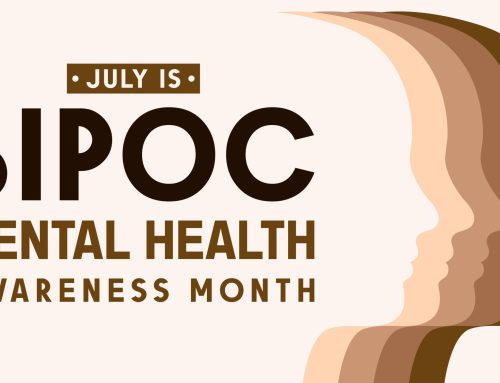 This morning…
This morning…
As I am sure a big a percentage of us do, I began this morning by perusing the headlines and reading a few articles while I prepared for the day. Now, I don’t know about the rest of you, but depending on the content of the article sometimes, especially in our current political climate, I find it irresistible to scroll down to the comment section to see what people are posting and saying. Why do I do this? Is it because I want to see what intelligent discord is happening without me? Maybe. It is because I feel I will gain some sort of invaluable insight into what I’ve read through the opinions of others? Probably not. Or is it because I have some sort of morbid curiosity with the inevitable flame war that I know will no doubt be taking place? Yeah, that must be it. However, in my comment scanning tendencies lays an element of self-sabotage to my emotional wellbeing as it relates to my harmony with the online community because within the mild-mannered comments of reasonable people lay Trolls waiting to sow their special brand of discord amongst the exchanges.
But what is a troll? And why is it important to be aware of what they do so that you don’t take the bait? Because falling into a “conversation” with an online troll is not only a waste of time, but can also negatively affect your mood and overall wellbeing. So, what can we do to counter these on-line fire starters? Easy, ignore them and never, ever under any circumstances, attempt to feed them.
What is a Troll?
First, let’s discuss what exactly an online troll is. Wikipedia defines a troll as “a person who sows discord on the Internet by starting quarrels or upsetting people, by posting inflammatory, extraneous, or off-topic messages in an online community (such as a newsgroup, forum, chat room, or blog) with the intent of provoking readers into an emotional response or of otherwise disrupting normal, on-topic discussion, often for the troll’s amusement.” That’s right, these trolls are scanning the same articles and getting involved in the same comment sections as you but with the sole purpose of ticking people off. Trolls are fairly obvious most of the time. With over the top comments, or completely ridiculous rhetoric it should be easy to see them coming. However, when certain lines are crossed and certain topics are tread upon, it can be extremely difficult to ignore them.
There is not just one type of troll either. They come many forms including trolls that specialize in insults, name-calling, profanity and racism, and anything offensive that they can think of. These guys border on the edge of cyberbullies and are probably the worst of the bunch. Next, you can have trolls that love to argue and just never seem to let something go until they are satisfied they have had the last word. The list goes on including trolls that are offended by anything and everything and will paint you as the bad guy no matter what you say; trolls that think they know it all and can’t help but correct you in any manner of grammar, statistics, or anything you think you know better than they do; and trolls that will simply say a single enraging comment and then recede into un-breaking silence to watch the enraged responses pour in. Regardless of the type of troll you’re up against it, your best defense is, again, DON’T FEED THEM!
Don’t Feed Them!
Now that we know what a troll is, let’s talk about why we shouldn’t ever feed them. To feed a troll is to take their bait, usually an inflammatory comment, and reply to them. This can be irresistible. They can’t truly believe what they wrote, can they? Maybe if I can just reason with them or give them some facts I can change their mind… No! This is exactly what they want.
Typically, a troll’s comments have no real reason behind them other than to get on your nerves or offend you in some way. For this reason, ignoring them can be tricky, however, especially if they make you angry. It’s like when someone tailgates you or cuts you off in traffic. It can be very hard not to get angry at the person who just disregarded your safety to gain a few seconds of time in traffic. But as tempting as it is to yell and scream out your car window at them, or use less than kind hand gestures, it goes without saying the safest and most reasonable course of action is to let them pass, take a deep breath, and be on your way without escalating the situation. Just as it’s natural to be angry when someone puts you in danger while in traffic, it’s natural to want to argue your point of view when you disagree with someone especially on a fundamental level. However, it’s impossible to win an argument with someone who’s only goal is to oppose your own.
Why Do They Get on Our Nerves Anyway?
So even if we know what a troll is and what their objective is, why is it that we still allow these nasty little things to affect us? One reason is that we tend to take even anonymous criticism personally. I mentioned cyberbullying earlier, and like bullies do, it can feel like we’re being picked on and being singled out in front of the rest of the comment section. In this case, it is important to remember that it is nothing personal, you simply happened to be the one that took the bait and subsequently suffered the obnoxious wrath of the would-be troll. We also tend to be defensive about things we believe in and often you are probably reading an article or browsing content about issues or topics you are interested in, care about, and are passionate about. And when someone comes along and starts spewing negativity in the face of these things you care about, it is hard not to get defensive. Counter this by keeping in mind that the troll does not know who you are, where you come from, or what kind of person you are. They only know what you type back to them, so the less you give them the better.
Another reason Trolls’ comments can bother us is that we forget that what they are saying is just their opinion, or fabricated all together with the goal of pushing our buttons. If we let ourselves think that an online comment is a broad opinion or fact and not just the misguided thoughts on one individual, it can lead to putting more weight into the hurtful comment/content then it merits. This concept has broader implications as well, especially relevant to the increasingly polar appearance of the US population. Often, the loudest voices online are coming from the smallest sources leading us to think that these small extremes make up a bigger percentage of the population than they really do. This is critical to remember if you are bothered by things you read online as you need to keep in mind that the most vocal people are often on the far ends of the spectrum, the most pleased or most outraged, the “extremes”. The people in the middle rarely make as much noise even though they make up the majority. This concept can be seen in anything from online comments to political rallies to restaurant reviews.
You’ll be better off, trust me!
The only true way to counter a troll is to ignore them. By doing the digital equivalent of walking away from a confrontation, you not only prevent them the satisfaction of letting them know they got to you, you also limit any affect the would-be troll may have on your mood or day. Avoid the knee-jerk reaction to respond, take a deep breath, and move on. It will allow you to get the negativity out of your mind and out of your day as soon as possible and allow you to focus on more important things, like the interactions and relationships that you have in real life such as friends, family, and co-workers. These are the people you care about and that care about you. You value their opinions and they value yours. Don’t waste time thinking about the trolls that like nothing more than to undermine anything you would express to them.
I wish you happy web-surfing, enjoy what you read, enjoy your exchanges with reasonable users online, and if you come across a Troll, whatever you do, don’t feed it.
To your wellbeing,
Nic Mckane
The MINES Team

 This morning…
This morning…









Leave A Comment